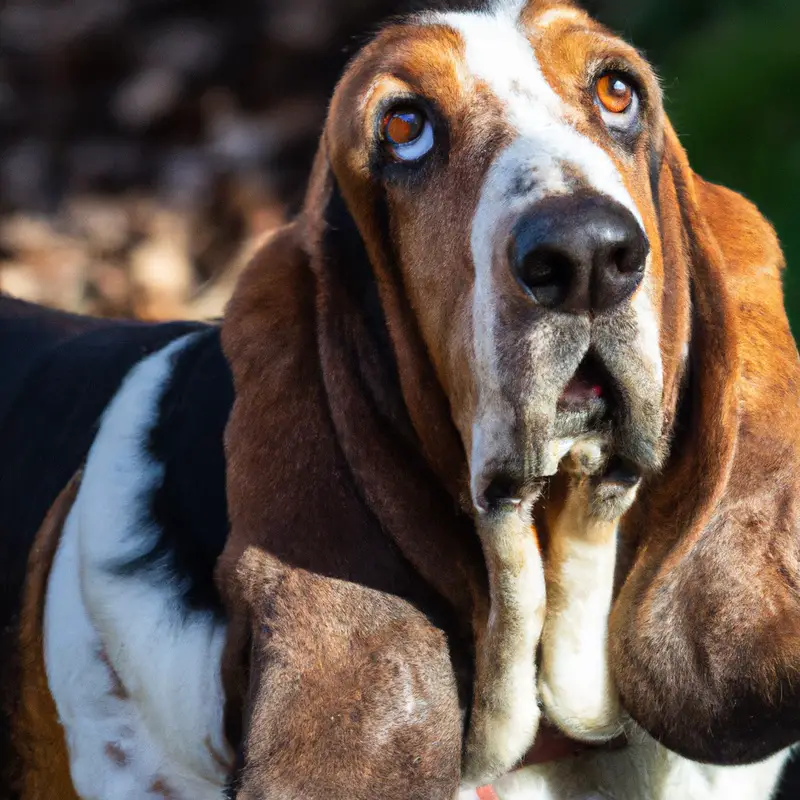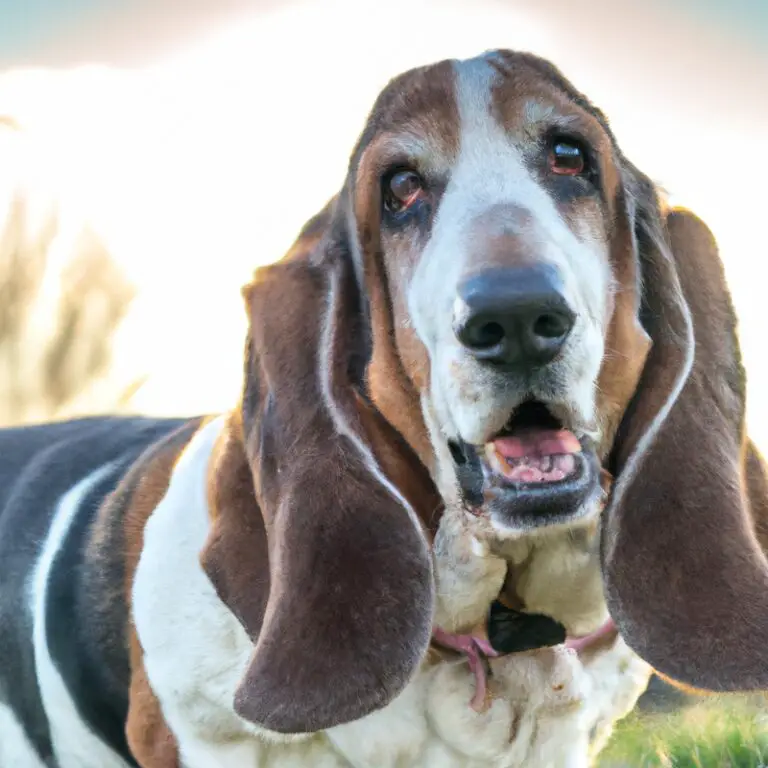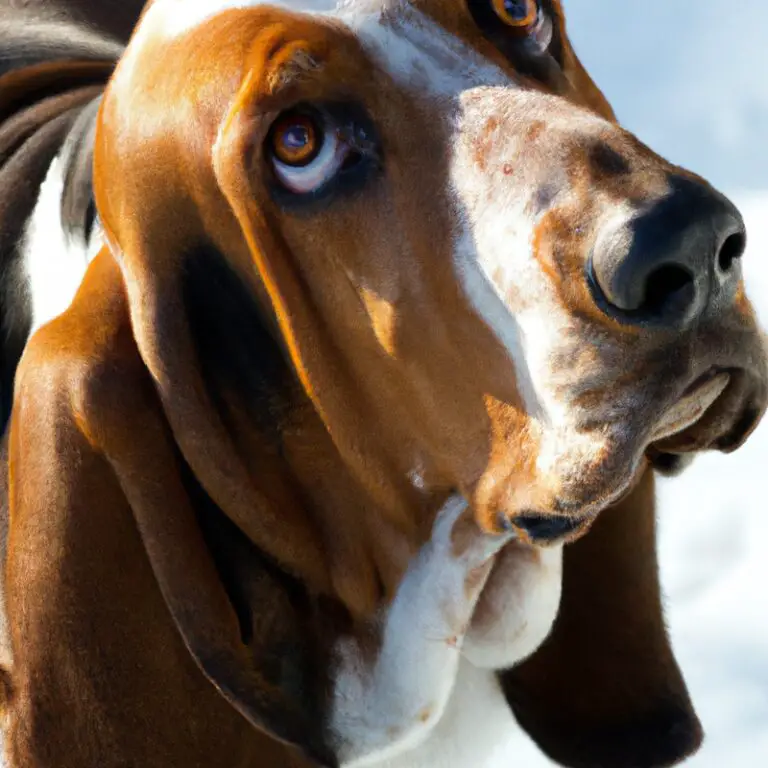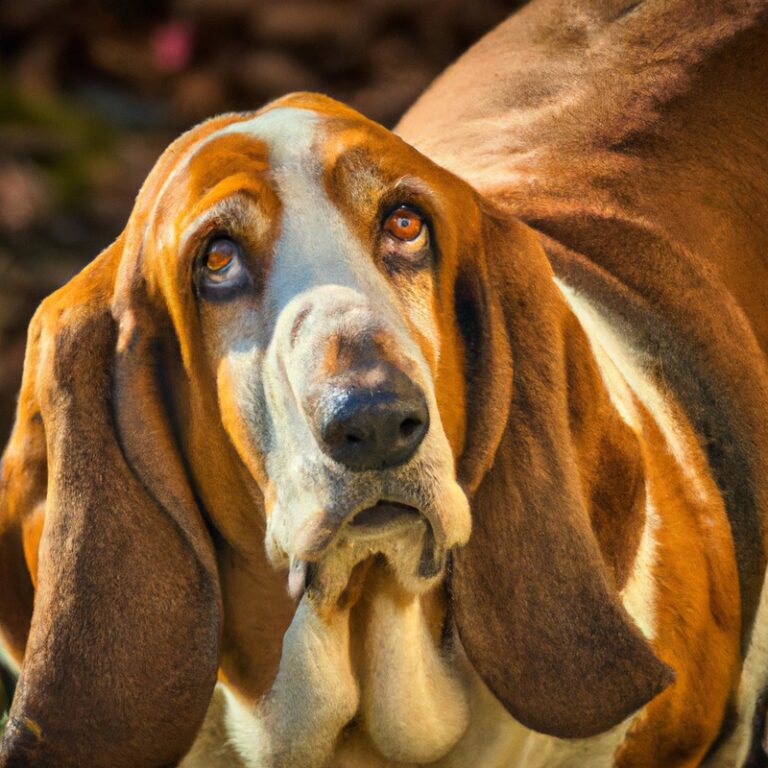Can Basset Hounds Be Apartment Dogs?
Key Takeaways:
- Basset hounds can live in apartments but require regular exercise and mental stimulation.
- Size and energy levels of Basset hounds make them adaptable to apartment living.
- Adequate space, proper training, and attention to their health needs are crucial for Basset hounds in apartments.
- Basset hounds’ calm nature and low exercise requirements make them suitable for apartment living, but individual needs may vary.
Are you an apartment dweller who dreams of having a furry companion by your side?
If so, you might be wondering if a Basset Hound could be the perfect pet for you.
With their unique appearance and lovable nature, Basset Hounds have captured the hearts of dog lovers around the world.
But can these charming droopy-eared pups adapt to apartment living?
In this article, I’ll share my expertise on the topic and provide you with all the information you need to decide if a Basset Hound could be the ideal apartment dog for you.
Stay tuned as we explore their characteristics, their exercise needs, and valuable tips for raising them in a smaller living space.
| Basset Hounds | |
| Size | Medium to large |
| Exercise Needs | Low to moderate |
| Temperament | Gentle, easygoing, and friendly |
| Apartment Suitability | No |
| Barking Tendency | High |
| Training Difficulty | Low to moderate |
| Adaptability | Not ideal for apartment living |
What are Basset Hounds?
Appearance and characteristics
Basset Hounds are known for their unique appearance and distinct characteristics. They have long, droopy ears and short legs, giving them a low-to-the-ground stance.
Their wrinkled faces and sad-looking eyes make them incredibly charming.
Bassets are medium-sized dogs with a sturdy build and a heavy bone structure. They have a strong sense of smell and are known for their tracking ability.
Basset Hounds are also known for being friendly, gentle, and easygoing.
They are great with children and other pets and are generally well-behaved. However, they can be stubborn at times, so consistent training is important.

Temperament and behavior
Basset Hounds are known for their friendly and easygoing temperament. They are generally good-natured, patient, and affectionate dogs.
Despite their stubborn streak, Basset Hounds are generally well-behaved and easy to train.
They are good with children and other pets, making them a great choice for families. However, they can have a tendency to be vocal and howl, which may not be ideal for apartment living.
Additionally, Basset Hounds are scent hounds and have a strong desire to follow their nose, so they may need constant supervision outdoors.
Exercise and activity needs
Basset Hounds have moderate exercise and activity needs. While they are not high-energy dogs, regular exercise is still important to keep them physically and mentally stimulated.
Daily walks are essential to prevent weight gain and maintain their overall health.
Basset Hounds also enjoy sniffing and exploring, so providing them with opportunities for scent-based activities such as nose work or puzzle toys can be beneficial. However, it’s important to avoid overexertion due to their heavy build and potential joint issues.
Considerations for having a dog in an apartment
Space and size requirements
When considering whether a Basset Hound can adapt to apartment living, it’s important to take into account their space and size requirements. Basset Hounds are medium-sized dogs that typically weigh between 50 and 65 pounds.
They have a long body and short legs, which means they may not require as much space to roam as some larger breeds.
However, Basset Hounds are known to be quite active and enjoy exploring, so it’s crucial to provide them with regular exercise opportunities, both indoors and outdoors, to ensure their physical and mental well-being.
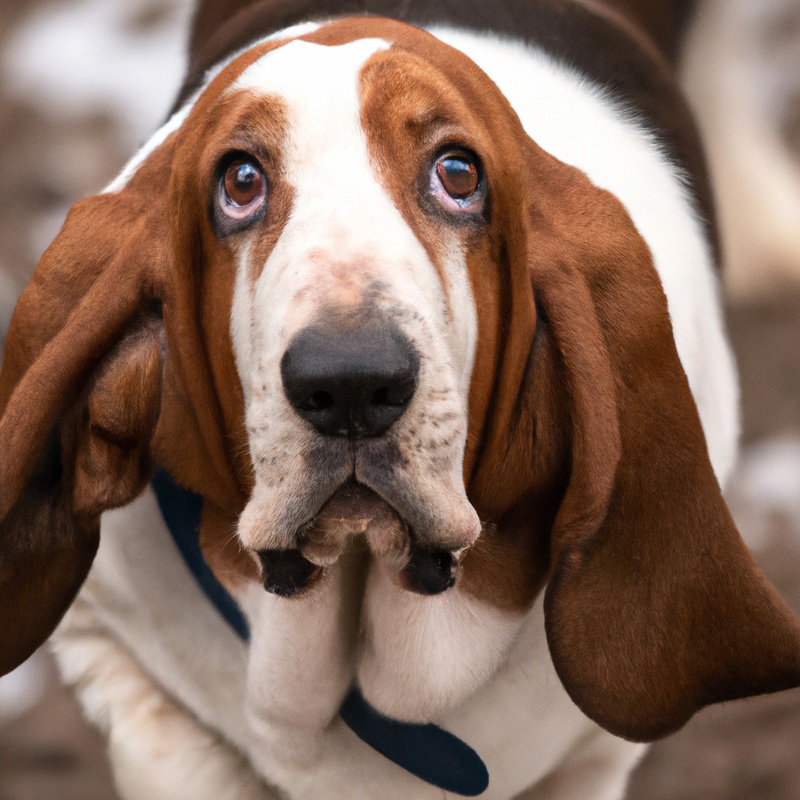
Noise and barking tendencies
Basset Hounds are known for their deep, booming barks and tendency to be vocal. They have a strong sense of scent and tend to bark when they detect something interesting or suspicious.
It’s important to note that their barking can be quite loud and may not be suitable for apartment living, especially in buildings with strict noise regulations.
However, with proper training and socialization, their barking tendencies can be managed to some extent.
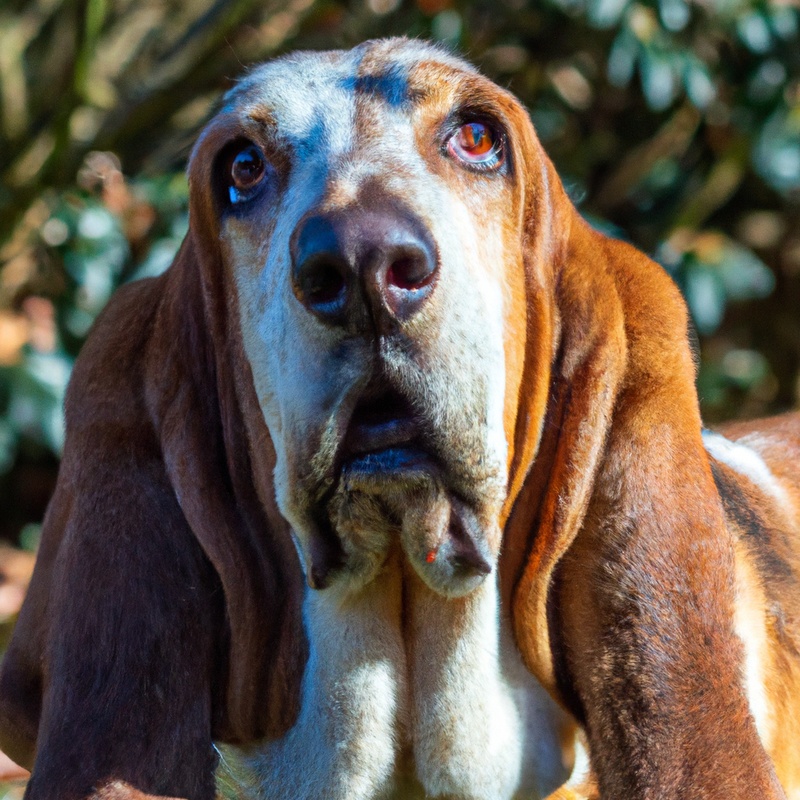
Socialization and interaction needs
Socialization and interaction are vital for a Basset Hound’s well-being, whether in an apartment or any other setting. These dogs crave human companionship and enjoy being part of the family.
Regular socialization with other people and animals helps prevent shyness or aggression.
Engaging in playtime, obedience training, and interactive games will keep them mentally stimulated and happy. Basset Hounds may become lonely if left alone for long periods, so it’s important to provide them with regular attention and companionship.
Can Basset Hounds adapt to apartment living?
Size and physical requirements
Basset Hounds are medium-sized dogs, weighing around 50-65 pounds and standing about 13-15 inches tall at the shoulder. They have a long body, short legs, and droopy ears.
Despite their larger size, Basset Hounds can adapt well to apartment living as long as their physical needs are met.
They don’t require a lot of space to roam, but regular exercise is important to keep them healthy and prevent weight gain. Taking them for daily walks and providing mental stimulation through interactive toys can help keep them happy and satisfied in an apartment environment.
Their physical requirements can be met with proper care and attention.
Basset Hounds’ temperament and behavior
Basset Hounds are known for their friendly and easygoing temperament.
They are generally laid-back and good-natured dogs, making them suitable companions for apartment living.
Bassets are typically calm indoors and adapt well to their environment.
They are not excessively active and are content with moderate exercise.
However, it’s important to note that individual personalities can vary.
Proper socialization and training are essential to ensure they are well-behaved and comfortable in their apartment setting.
Additionally, providing mental stimulation and attention is key to prevent boredom and potential destructive behavior.
Exercise and mental stimulation
Basset Hounds, like any other dog breed, require regular exercise and mental stimulation to stay happy and healthy. Daily walks and playtime are important for their physical well-being.
However, it’s important to note that Basset Hounds are not high-energy dogs and have a tendency to become lazy.
Engaging them in activities that challenge their minds, such as puzzle toys or training sessions, can provide the mental stimulation they need.
Tips for raising a Basset Hound in an apartment
Creating a comfortable living environment
Creating a comfortable living environment for your Basset Hound in an apartment is essential. Here are a few tips to ensure their well-being:
- Provide a cozy sleeping area with a comfortable bed or blanket.
- Make sure there’s enough space for them to move around freely.
- Keep the apartment well-ventilated and at a comfortable temperature.
- Use calming tools like music or essential oils to create a relaxing atmosphere.
- Set up a designated area for their food and water bowls.
- Create a safe space for them to retreat to when they need some alone time.
- Keep their toys and interactive puzzles handy for mental stimulation.
Providing adequate exercise and mental stimulation
Basset Hounds may be low-energy dogs, but they still need regular exercise and mental stimulation to stay happy and healthy, even in an apartment. To provide adequate exercise, take your Basset Hound for daily walks or play sessions.
Mental stimulation can be achieved through puzzle toys, interactive games, and training sessions.
Remember to adjust the intensity and duration of exercise based on your Basset Hound’s age, health, and individual needs. Keep in mind, a bored Basset Hound may become destructive, so it’s important to prioritize their exercise and mental stimulation needs.
Dealing with barking and noise issues
Basset Hounds are known for their deep, bellowing howls and tendency to bark. When dealing with barking and noise issues, it’s important to address the root cause.
Be proactive in providing mental stimulation and exercise to prevent boredom, as this can contribute to excessive barking.
Use positive reinforcement training to teach your Basset Hound to bark less on command. Consider using white noise machines or calming music to drown out external noises that may trigger barking.
Finally, seek professional help if barking becomes excessive or disruptive.
Potential challenges of having a Basset Hound in an apartment
Barking and howling tendencies
Basset Hounds are known for their deep, melodious barking and howling tendencies. They have strong vocal cords and won’t hesitate to use them when they feel the need to communicate.
This can be a potential challenge for apartment living, as the noise can disturb neighbors.
It’s important to address this issue early on by providing proper training and socialization. Teaching your Basset Hound the “quiet” command and providing mental stimulation can help minimize excessive barking and howling.
Potential odor and shedding
Basset Hounds are known for their short, dense coats, which can shed quite a bit.
While they don’t have a strong odor naturally, they can develop a scent if not properly groomed.
Regular bathing, brushing, and cleaning of their ears can help keep them smelling fresh.
In terms of shedding, daily brushing can help minimize loose fur around the house.
Regular vacuuming and grooming appointments can also help manage the shedding.
It’s important to consider these factors if you’re thinking of having a Basset Hound in an apartment.
Separation anxiety and apartment living
Basset Hounds can be prone to separation anxiety, which can present challenges in an apartment setting. Separation anxiety is a condition where dogs become anxious or distressed when left alone for extended periods.
Living in an apartment means that there may be more restrictions on leaving the dog alone, making it harder to address separation anxiety.
It’s important to consider this potential challenge and be prepared to provide extra support, such as crate training, interactive toys, or professional help, to help alleviate separation anxiety in a Basset Hound living in an apartment.
Alternative options for apartment dwellers
Small and low-energy dog breeds
Small and low-energy dog breeds are ideal for apartment living. These breeds are compact in size and do not require a lot of physical exercise.
Some popular small and low-energy breeds include Cavalier King Charles Spaniels, French Bulldogs, and Shih Tzus.
These dogs are content with short walks and indoor playtime. They are generally calm and quiet, making them suitable for a smaller living space.
Additionally, they tend to have a lower risk of developing destructive behaviors when their exercise needs are met.
Considering mixed breeds and rescue dogs
If you’re considering getting a dog for your apartment and want to make a positive difference in a dog’s life, consider adopting a mixed breed or a rescue dog. Mixed breeds often have a great combination of traits from different breeds, and rescue dogs can make incredibly loyal and grateful companions.
They come in all shapes and sizes, so you can find one that fits well in your apartment.
Plus, by rescuing a dog, you’ll be giving them a second chance at a happy and loving home.
Other pet options for apartments
If you’re looking for a pet that’s suitable for apartment living, there are plenty of options to consider. Here are some pet options that can thrive in smaller spaces:
- Cats: Cats are independent and can adapt well to apartment living. They don’t require as much exercise as dogs and are content with indoor play and scratching posts.
- Small dog breeds: There are several small dog breeds, such as Cavalier King Charles Spaniels and French Bulldogs, that are well-suited for apartment living. These breeds have lower energy levels and do well with shorter walks and playtime inside.
- Fish: Fish make great apartment pets as they require minimal space and care. Setting up a fish tank can provide a tranquil and visually appealing focal point in your apartment.
- Small mammals: Animals like hamsters, guinea pigs, and rabbits can thrive in smaller enclosures, making them great companions for apartment dwellers. They require less space and exercise compared to larger pets.
Remember to research the specific needs of any pet you’re considering, and ensure that your apartment’s rules and regulations allow for the type of pet you choose.
Final Verdict
While Basset Hounds can adapt to apartment living, it requires careful consideration and proper care. Their size and exercise needs must be met, and their temperament and behavior should be understood to address any potential challenges.
By creating a comfortable environment, providing adequate exercise and mental stimulation, and addressing barking and noise issues, apartment dwellers can successfully raise a Basset Hound.
However, it’s important to note that alternative options, such as small and low-energy dog breeds or mixed breeds and rescue dogs, should also be considered based on individual living situations. Ultimately, with the right preparations and commitment, Basset Hounds can thrive in apartment living.

